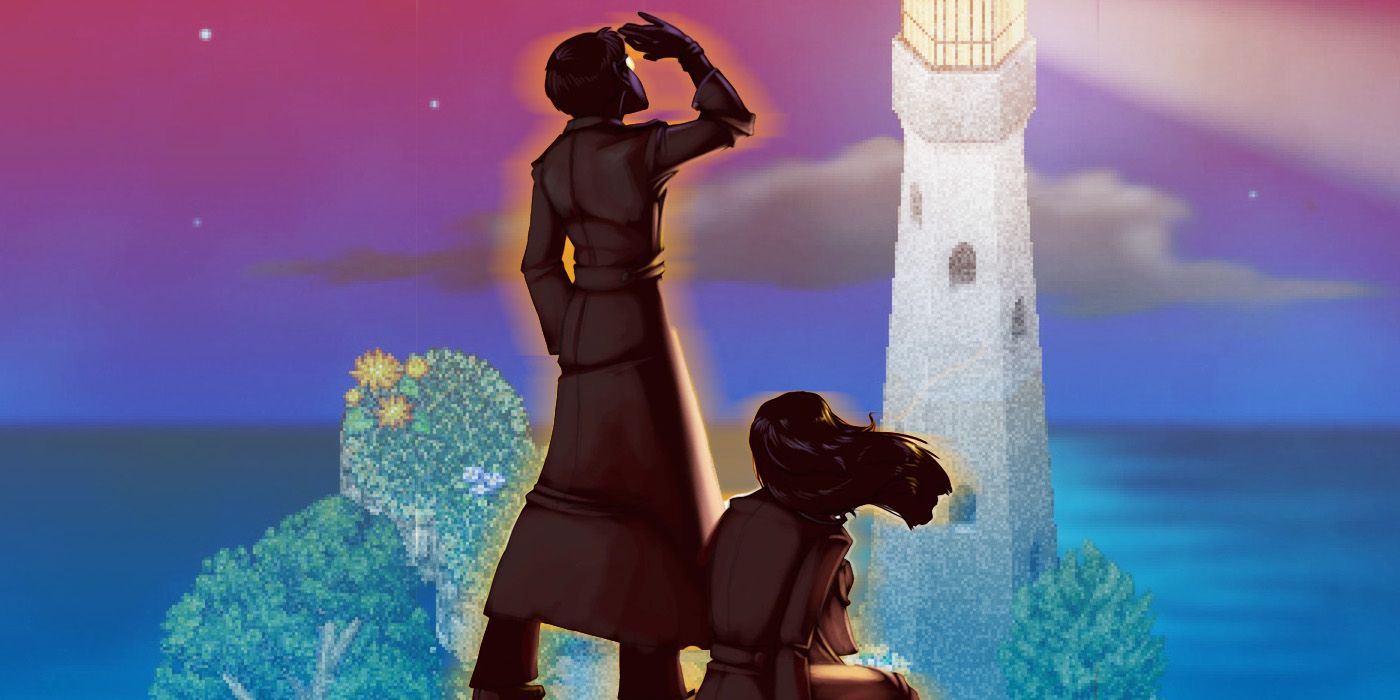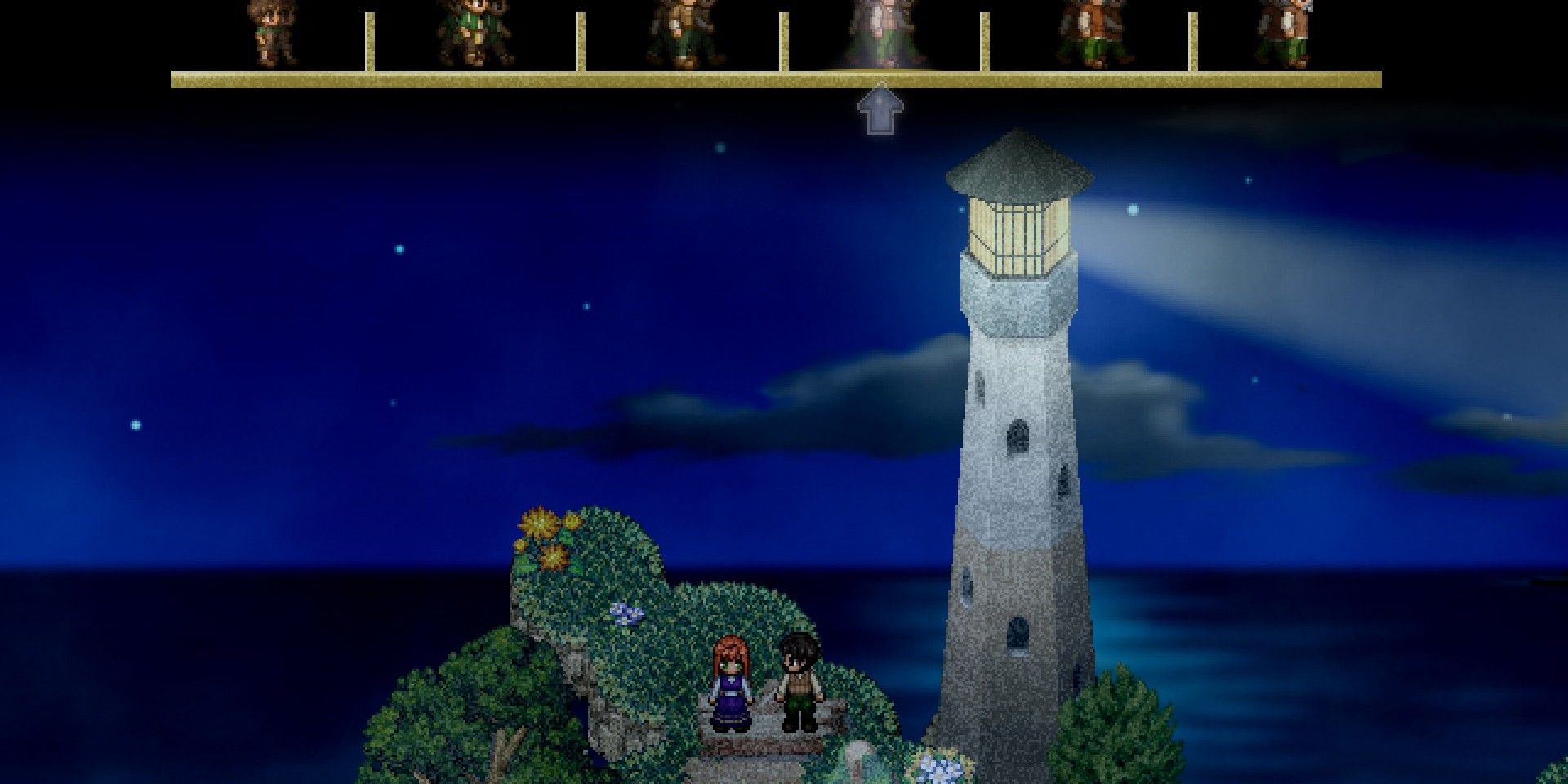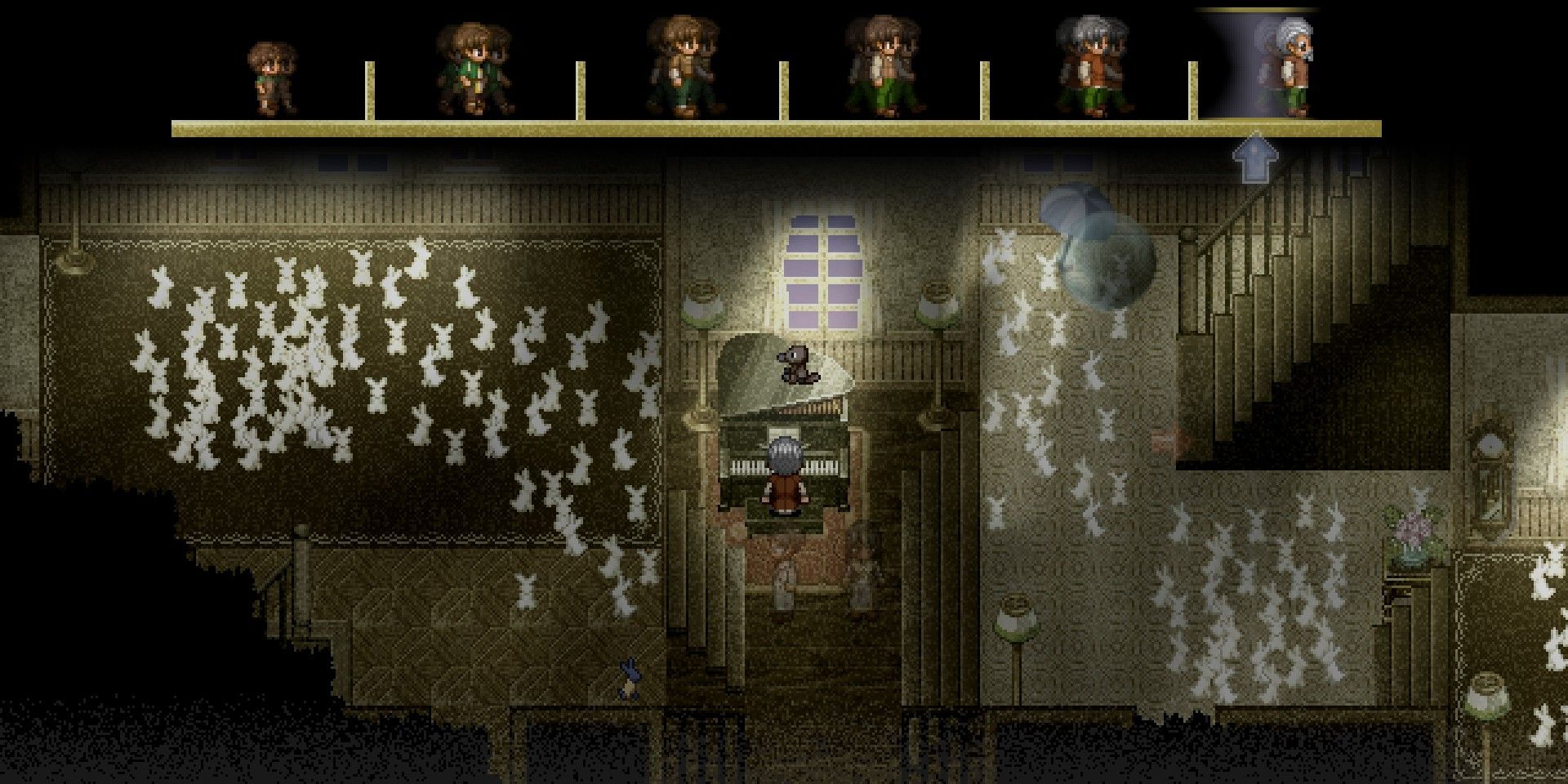Characters with Asperger's or autism have often been represented fairly one-dimensionally, with their defining characteristic being their diagnosis. However, Freebird Games' 2011 offering To the Moon includes characters with autism with complex and very different identities, finally offering good representation for players with autism or Asperger's.
To the Moon is a 16-bit adventure game that tells the story of a dying man named Johnny, who's last wish is to adjust his memories to send his younger self to the moon. Luckily, in the fictional world of the game, re-writing memories is possible. Players act as agents from Sigmund Corp. who are inserting Johnny's fake astronaut memory by following a trail of mementos backward through his memories, uncovering the unlikely importance of objects like pickled olives and the true memories that haunt his past.
While the main story focuses on deeply buried trauma in Johnny's past, one recurring character is his wife River. Many of the memories that the doctors travel through are focused on Johnny's relationship with River and the impact she has had on his life. River is presented as a character with some form of autism or Asperger's, affecting but not defining her actions within the game.
Asperger syndrome, recognized medically as an autism spectrum disorder since 2013, is a developmental disorder that often leads to obsessive focus and difficulty reading social cues. However, every person with Asperger's or autism displays different characteristics or realizes these symptoms in different ways.
The game never explicitly states that River has Asperger's, but it does show a scene with her and Johnny in a doctor's office, discussing her unnamed diagnosis in conjunction with books by Tony Attwood, a doctor famous for his work on Asperger syndrome. Other memories are tied with equine therapy designed to help River manage her social interactions and conversations between Johnny and his friends that continue to suggest her diagnosis.
River presents some common attributes associated with Asperger's, including a fixation on particular actions and difficulty in forming social connections. One of her earliest memories with Johnny is tied to the untimely death of a rabbit in a road, and until her death, River makes origami versions of these rabbits, unable to let go of that memory. While these parts of her personality are integral to how her character works and her interactions with Johnny, they aren't depicted as limiting her.
Where To the Moon succeeds with River is by creating a complex character whose personality isn't only related to their diagnosis. River's relationship with Johnny is meaningful, and while some of her repetitive actions impact the story, like her constant folding of origami rabbits, they aren't her full story.
But To The Moon goes further and presents a second character with Asperger's or on the autism spectrum. Johnny's friend Isabelle also identifies with River's diagnosis, though she presents in different ways. Through conversations with her, the game highlights different ways that autism can manifest in different people, making it clear that it's not a one-dimensional diagnosis but rather presents differently with different people. By treating autism and Asperger's as complex, multi-faceted traits, To the Moon works to improve how these identities are represented in games.
To the Moon tries to feature characters with autism or Asperger's in a way that does the condition justice without making these characters all about their diagnoses. The result is that the game shows the industry what good autism representation should look like.



